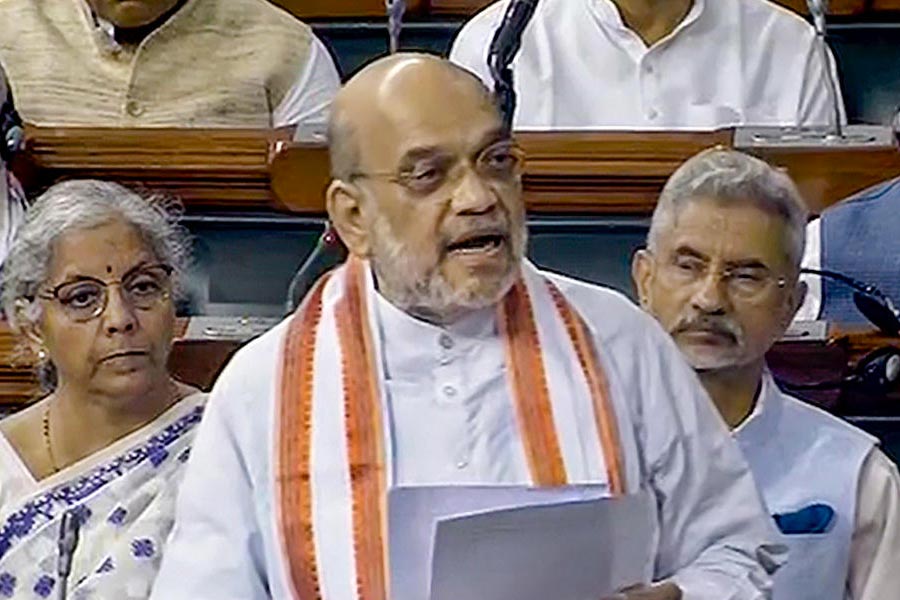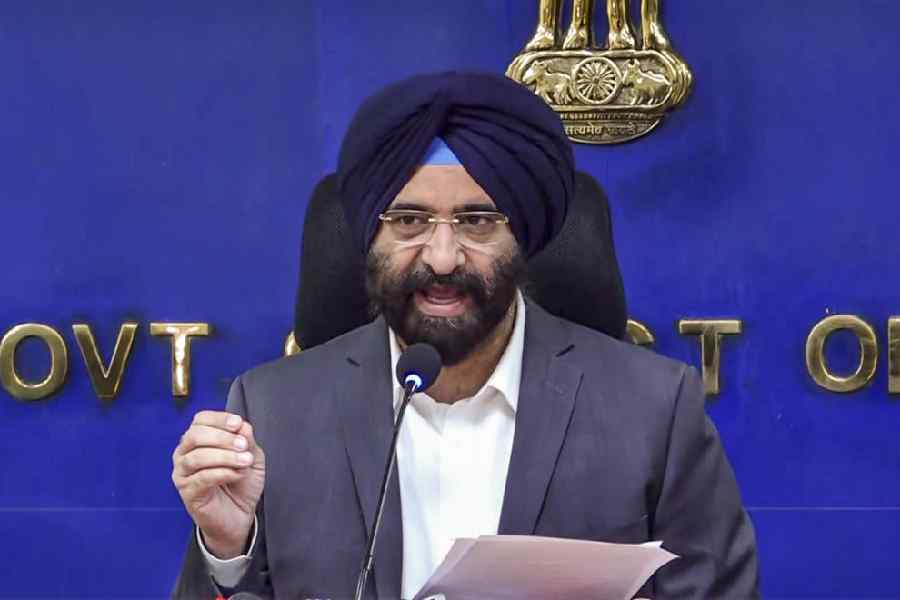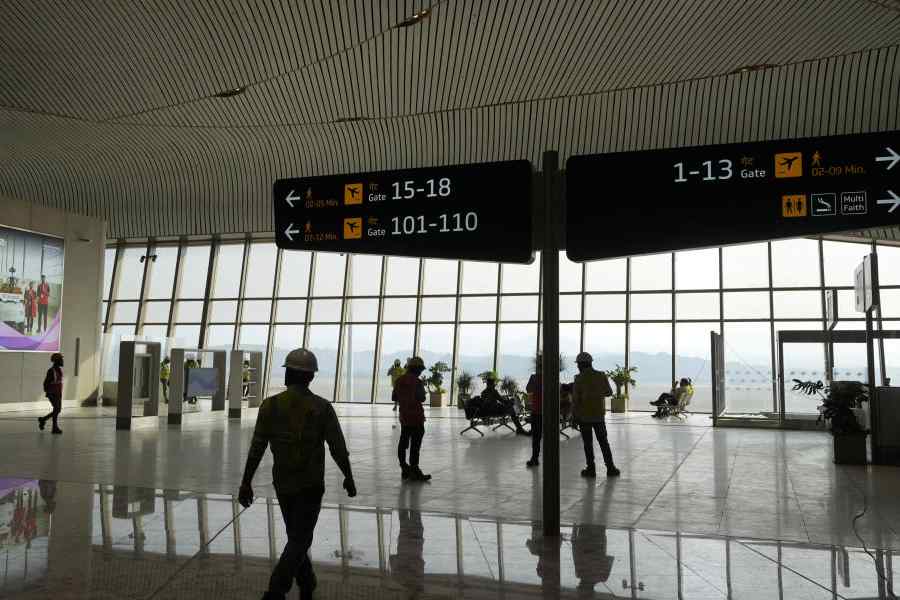The new Bhartiya Nyaya Sanhita 2023, which is expected to replace the Indian Penal Code 1860, has introduced many special provisions in view of the constantly changing nature of crime and to tackle heinous crimes of terrorism and those by organised syndicates, officials said on Saturday.
These provisions aim at not only defining these terms but also taking strong action against the financial proceeds accrued due to such acts.
As has been the trend, the current laws sometimes are not able to take action against absconders and conspirators located outside India, the officials said.
The new bill will empower police to bring such absconders to book, punish them for their acts and also recover the financial benefits they may have gained due to their involvement.
Accomplices of these syndicates will also be brought to justice through this new law.
Abetment of terrorist acts and organised crime by people from outside India has now been made punishable, the officials said.
In order to enable police to unearth external linkages of criminal conspiracy, organised crimes and terrorism, abetment of an offence committed in India by a person outside India has now been made an offence.
An element of 'common object' has been introduced to define its boundaries of criminal conspiracy.
A new penal section has been added related to organised crime. This section penalises any unlawful activity either by a member of an organised crime syndicate or on behalf of such syndicate by use of violence, coercion or other lawful means to accrue direct or indirect material and financial gains.
The gains will include tangible and intangible both. A group of three or more persons who are acting either alone or collectively, and have indulged in commission of one or more serious offences can be called organised crime syndicate.
This section provides for death sentence or imprisonment for life as punishment in case the unlawful act results in the death of any person.
In other cases, minimum punishment for five-year (extendable to life imprisonment) has been provided for member of such syndicates.
Barring spouse, anyone who intentionally conceals or harbours any accused under this section, shall be punished with minimum imprisonment of three years. The section has provision for minimum three-year imprisonment for a person, who holds any property gained through organised crime.
Acts of terrorism
This section includes any activity carried out to threaten unity, integrity and security of India; to intimidate general public or to disturb public order by using range of lethal weapons and any other life endangering substance.
It also covers acts of hijacking and abduction of any person to compel government to do or abstain from doing certain things. Besides, it considers any act as terrorist act, which is covered under second schedule of UAPA.
Anyone who is involved, directly or indirectly, in terrorist act will be treated as terrorist under this section.
Similarly, any entity, owned or managed by terrorists or group of terrorists, which is involved in terrorist acts will be considered as terrorist organisation.
Besides, any death due to terrorist act will draw the punishment of death or life imprisonment with minimum fine of rupees ten lakh.
In any other case, minimum punishment will be five years (extendable to life imprisonment).
This section also provides for minimum punishment of five years (extendable to life imprisonment) for those who engage in any act in a preparation of any terrorist act.
Ex-parte trial and conviction of fugitives: To deal with the menace of permanent fugitives and absconders during the ongoing trial, a special provision has been inserted in the bill.
In case, a person is a declared proclaimed offender, irrespective of being charged jointly, and he is evading trial with no possibility of arrest in near future, the court shall not stop the trial in any manner. Moreover, the court shall proceed with the trial in a way as if the absconder was present and pronounce the judgement. This expressed provision is likely to cover plethora of dreaded criminals and terrorists across the states.
It will also reactivate the wheels of justice, officials said.
Trial in absentia
New section on trial in absentia has been inserted for the persons who have declared proclaimed offenders. It is provided that the trial in the absence of the accused will start after three months from the date of framing of charges.
The process of issuing of two warrants of arrest (in 30 days interval), publishing the notice in two local or national newspapers, informing his relative regarding commencement of trial, affixing notice of commencement of trial will be followed.
The accused who is tried in absentia, will be provided an advocate by the State for his defence.
Trial in absentia will not be limited to recording of evidence of witnesses (which is the current provision) but it will be up to judgment and punishment.
A person can currently be declared 'proclaimed offender' only under few sections.
Even heinous offences like rape, trafficking, etc. are not covered under this category. Amendment has now been made that proclaimed offender can be declared in all offences which are punishable with imprisonment of 10 years or more, or with life imprisonment, or with death.
Further, in cases of proclaimed offenders, a provision has been introduced for attachment and forfeiture of property outside India.
The new section provides that the Superintendent of Police or Commissioner of Police shall make an application to the court and thereafter the court shall initiate steps to request assistance from a court or an authority in the contracting country for identification, attachment and forfeiture of property belonging to a proclaimed offender.
Currently there is no provision for attachment or seizure of property derived from the proceed of crime.
A new section added to enable the police, with the permission of the court, to seize and attach property obtained as proceeds of crime (excluding PMLA cases).
These changes will go a long way in further strengthening the action against hardened terrorists and members of organised crime syndicates, officials said.
By targeting their financial proceeds of crime and prosecuting the absconders, some of who flee abroad, will also act as effective deterrent such crimes.
Except for the headline, this story has not been edited by The Telegraph Online staff and has been published from a syndicated feed.












